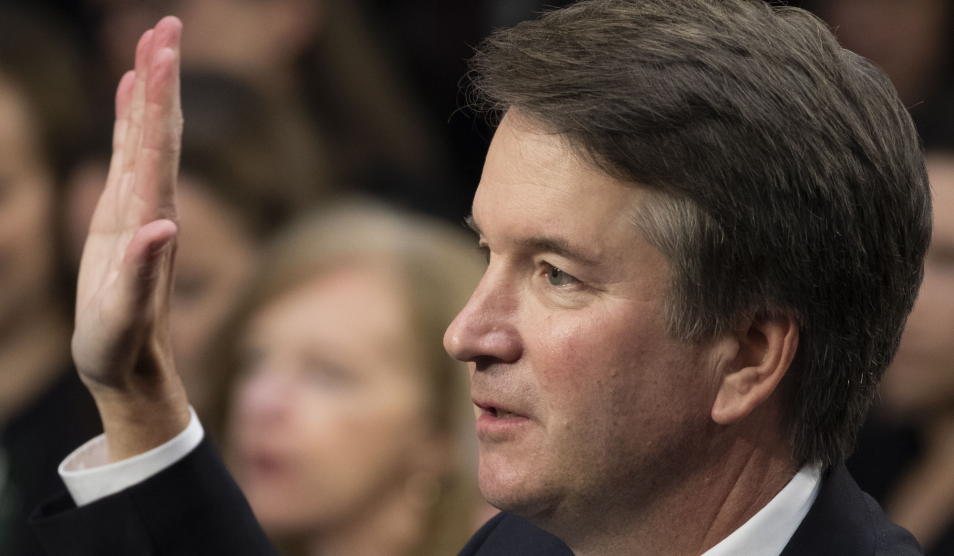
Alex Edelman/ZUMA
Brett Kavanaugh is facing a grilling on Capitol Hill today, the second day of his Judiciary Committee confirmation hearing to become the next Supreme Court justice.
He’s been questioned about a variety of hot-button issues, including Roe v. Wade and assault weapons. But the most noteworthy moments from the hearing might relate to issues that Kavanaugh has been reluctant to address before the committee: law enforcement officials’ ability to subpoena the president and the president’s pardon power—two topics that loom over Donald Trump’s presidency and the ongoing investigations by special counsel Robert Mueller and other federal prosecutors.
“Can a sitting president be required to respond to a subpoena?” Sen. Dianne Feinstein, the committee’s top Democrat, asked at the top of Wednesday’s hearing.
Kavanaugh described the question as a hypothetical one and insisted that he therefore couldn’t provide an answer to it.
“My understanding is that you’re asking me to give my view on a potential hypothetical, and that’s something that each of the eight justices currently sitting on the Supreme Court when they were sitting in my seat declined to decide potential hypothetical cases,” he said.
Curiously, Feinstein proceeded to thank Kavanaugh for his “forthcoming” response.
.@SenFeinstein: "Can a sitting president be required to respond to a subpoena?"
Judge #Kavanaugh: "So, that's a hypothetical question…"
Full #KavanaughConfirmation video here: https://t.co/AIxDoPZL7N #SCOTUS #SCOTUSnominee pic.twitter.com/5oAE454GoJ
— CSPAN (@cspan) September 5, 2018
Later in the hearing, Kavanaugh refused to answer a question on the president’s ability to pardon himself.
“President Trump claims he has an absolute right to pardon himself. Does he?” Sen. Patrick Leahy (D-Vt.) asked.
“The question of self-pardons is something I have never analyzed. It’s a question that I have not written about. It’s a question, therefore, that’s a hypothetical question that I can’t begin to answer in this context as a sitting judge and as a nominee to the Supreme Court,” Kavanaugh said.
When asked if the president had the legal standing to pardon an individual in exchange for a promise not to testify against the president, Kavanaugh again declined. Leahy remarked that for the sake of the country, he hoped it would remain a hypothetical question.
While it’s unclear if Trump has been tuning into the hearing—his Twitter account on Wednesday appeared laser-focused on other topics, most notably Bob Woodward’s forthcoming book and the NFL—it’s safe to assume that the president is likely very pleased with his nominee’s performance and staunch refusal to opine on the very real legal issues threatening his presidency.
.@SenatorLeahy: "President Trump claims he has an absolute right to pardon himself. Does he?"
Judge #Kavanaugh: "The question of self-pardons is something I have never analyzed. It's a question that I've not written about…therefore that's a hypothetical question…" #SCOTUS pic.twitter.com/OPXYCLrFp6
— CSPAN (@cspan) September 5, 2018



